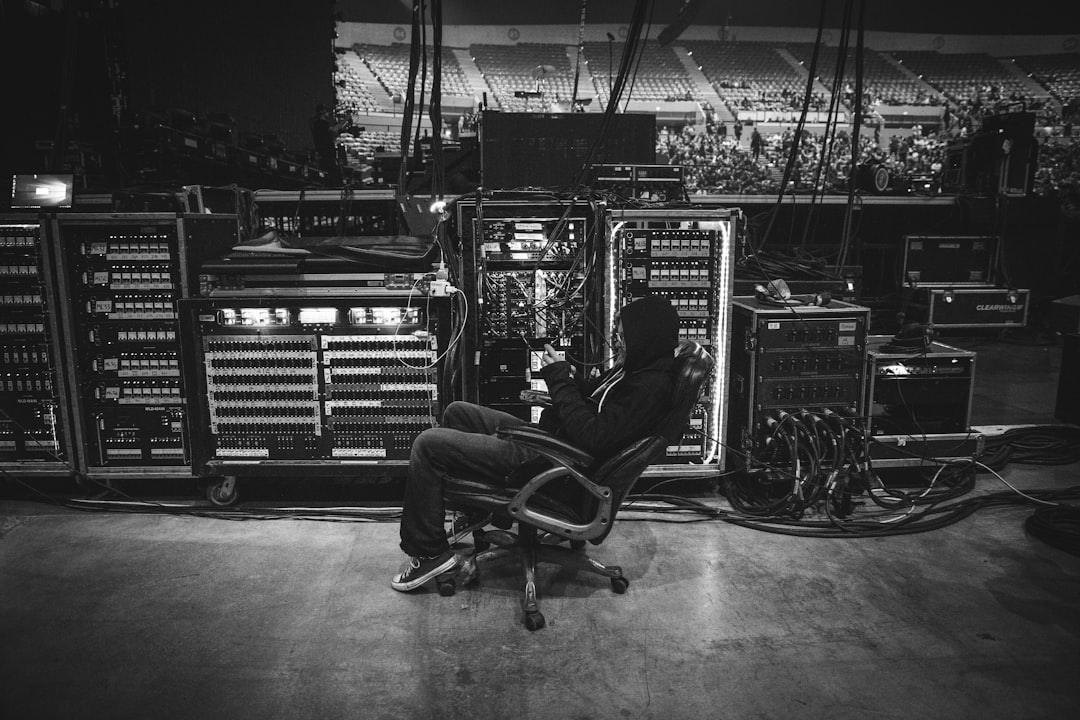The NFT Revolution: Transforming Music Distribution and Ownership
The article explores the impact of NFTs on the music industry, discussing their role in distribution, monetization, artist revenue and control, challenges and legal ambiguities, the future of the music market, tokenized music experiences, fan engagement and ownership, and empowering artists and fans.
NFTs, or non-fungible tokens, have emerged as a transformative force in the music industry, presenting new and innovative opportunities for artists, collectors, and fans. These unique digital assets, built on blockchain technology, have redefined the traditional concept of music ownership and consumption, revolutionizing the way music is created, distributed, and experienced. The impact of NFTs on the music industry is profound, reshaping the dynamics between artists and their audience, and offering unprecedented possibilities for revenue generation and fan engagement.
One notable example of the impact of NFTs on the music industry is the rise of virtual concerts and exclusive album releases. Musicians are leveraging NFTs to offer limited-edition tracks, exclusive content, and virtual experiences, providing fans with an entirely new way to engage with their favorite artists. This innovative approach has redefined the traditional music consumption experience and has reshaped the relationship between artists and their audience. Additionally, the integration of NFTs has empowered artists to bypass traditional platforms, creating a direct and intimate connection with their fan base, ultimately transforming the way music is created, distributed, and experienced.
The transformative power of NFTs in the music industry is evident, presenting new opportunities for artists, collectors, and fans to engage with music in unprecedented ways. As the music industry continues to evolve in the digital age, it is essential for stakeholders to explore the potential of NFTs and their role in shaping the future of music. For more details on NFTs and cryptocurrency-related entertainment content, readers are encouraged to explore Bitnews NZ, a platform providing news, prices, and guides related to Bitcoin and other cryptocurrencies, designed for entertainment purposes. Visit Bitnews NZ for more information and entertainment related to cryptocurrency. [1] Source: Tunedly – The Origins of NFTs and Their Impact on the Music Industry Source: Rolling Stone – Rise, Risks, and Rewards of NFTs in the Music Industry
1. Overview of NFTs in the Music Industry
NFTs, or non-fungible tokens, have gained significant traction within the music industry, offering a novel way for artists to tokenize their music and associated assets. These unique digital assets are built on blockchain technology, providing a secure and transparent way to prove ownership and authenticity. Their emergence has led to a seismic shift in the music landscape, offering unprecedented opportunities for artists, collectors, and fans alike.
The concept of NFTs has brought about a fundamental change in the way music is perceived, consumed, and monetized. Musicians are leveraging NFTs to tokenize individual tracks, music videos, albums, and even digital art, offering these as unique and exclusive digital assets to their fans. This has not only democratized the music industry but has also provided artists with a direct source of income. The integration of smart contracts in NFTs has further streamlined the royalty payment process, ensuring that artists receive fair compensation for their work while fostering trust and transparency within the ecosystem. This shift has been instrumental in altering the traditional distribution model, enabling artists to bypass intermediaries and connect directly with their audience.
Furthermore, NFTs have played a pivotal role in transferring music ownership from large corporations to individual fans and collectors. By doing so, they have empowered artists to have greater control over their compositions and creative output. This shift has not only provided artists with a sustainable revenue stream but has also allowed them to retain control over their creative endeavors, offering transparency, content limitations, and fair distribution of royalties. The transparency and content limitations offered by NFTs allow artists to dictate the terms of ownership and usage, enabling them to maintain a level of control that was previously challenging to achieve in the traditional music market.
2. Music NFTs: Distribution and Monetization
The rise of NFTs has revolutionized the music industry by providing musicians with innovative avenues to distribute and monetize their work. For example, artists can tokenize their individual tracks, music videos, albums, and even digital art, allowing them to offer exclusive, limited editions directly to their fans. This shift has been instrumental in altering the traditional distribution model, enabling artists to bypass intermediaries and connect directly with their audience.
Moreover, NFTs have allowed musicians to engage with their fans in unique and exclusive ways, offering virtual concerts, limited-edition digital merchandise, and other immersive experiences. This not only generates revenue but also fosters a deeper connection between artists and fans, creating a more intimate and interactive music consumption experience. In essence, NFTs have revolutionized the music industry by providing artists with unprecedented control over their work and enabling them to forge stronger connections with their audience, ultimately leading to new and sustainable revenue streams. This transformative technology is reshaping the music industry landscape, empowering artists to explore new creative avenues while maintaining a level of control and ownership that was previously unattainable.
The integration of NFTs in the music industry is expected to contribute to the expansion of the music market, offering greater power and autonomy to artists and their followers in the future. As the industry continues to evolve, entertainers and their management teams are encouraged to consider NFTs as part of a broader toolkit for music distribution and engagement, selecting a path that resonates with their artistic aspirations and values.
3. Impact on Artist Revenue and Control
The impact of NFTs on the music industry has been profound, particularly in terms of the revenue and control they offer to artists. NFTs have opened up new revenue streams for musicians, allowing them to monetize their work in innovative ways. For example, artists can release tokenized albums, creating scarcity and value, which transforms the way music is consumed and collected. This not only generates income for the artists but also enhances the perceived value of their music, opening up opportunities for new and diverse revenue streams.
Additionally, the integration of smart contracts in NFTs has automated royalty payments for artists, fostering trust and equity in their dealings with various stakeholders. This level of control and transparency is unprecedented in the music industry, giving artists the confidence to explore new creative horizons and connect with their audience in more meaningful ways. The transparency and content limitations offered by NFTs allow artists to dictate the terms of ownership and usage, enabling them to maintain a level of control that was previously challenging to achieve in the traditional music market.
By leveraging NFTs, artists have the opportunity to engage with their fans in unique and exclusive ways, offering virtual concerts, limited-edition digital merchandise, and other immersive experiences. This not only generates revenue but also fosters a deeper connection between artists and fans, creating a more intimate and interactive music consumption experience. In essence, NFTs have revolutionized the music industry by providing artists with unprecedented control over their work and enabling them to forge stronger connections with their audience, ultimately leading to new and sustainable revenue streams. This transformative technology is reshaping the music industry landscape, empowering artists to explore new creative avenues while maintaining a level of control and ownership that was previously unattainable.
The impact of NFTs on the music industry is profound, reshaping the dynamics between artists and their audience, and offering unprecedented possibilities for revenue generation and fan engagement. As the music industry continues to evolve in the digital age, it is essential for stakeholders to explore the potential of NFTs and their role in shaping the future of music. For more information and entertainment related to cryptocurrency, visit Bitnews NZ.
4. Challenges and Legal Ambiguities
The increasing use of NFTs in the music industry has introduced a range of challenges and legal uncertainties that need to be addressed. One of the primary concerns revolves around copyright issues. As artists tokenize their music and associated assets, questions arise about the ownership and rights to these digital assets. Navigating the legal implications of these ownership rights is crucial to ensure that artists and other rights holders are properly compensated and protected.
Another significant challenge is related to taxation. The unique nature of NFTs and the decentralized nature of blockchain technology have raised questions about how these digital assets should be taxed. From income tax implications for artists to potential sales tax considerations for NFT transactions, the taxation landscape surrounding NFTs in the music industry is complex and requires careful examination to ensure compliance with legal requirements and regulations.
Furthermore, the environmental impact of NFTs has emerged as a point of contention. The energy-intensive process of minting and trading NFTs has sparked discussions about the ecological footprint of these digital assets. It’s essential for the music industry to address these environmental concerns and explore sustainable practices in the creation and management of NFTs to minimize their overall impact on the environment.
In response to these challenges, effective NFT marketing strategies have become increasingly important. Understanding the diverse audience and engaging fans through social media are essential components of navigating these complexities. Moreover, hosting educational events to raise awareness about NFTs, their legal implications, and environmental considerations can play a vital role in promoting responsible and sustainable adoption of NFTs in the music industry.
The legal ambiguities associated with NFTs in the music industry have prompted stakeholders to collaborate and develop comprehensive strategies to tackle these challenges and ensure the ethical and legal use of NFTs in the music landscape. This proactive approach is essential for establishing a sustainable and responsible framework for the integration of NFTs in the music industry, ultimately fostering a more transparent and equitable environment for artists, collectors, and fans.
For more information on NFTs and their impact on the music industry, visit Bitnews NZ for insightful articles and content related to cryptocurrencies and their entertainment purposes.
5. The Future of Music Market
The future of the music market is being significantly impacted by the rise of NFTs, with emerging platforms introducing new and innovative ways for artists to engage with their fans. For example, musicians are now able to host virtual concerts and offer unique experiences exclusively for NFT owners. This not only provides a novel way for artists to connect with their audience but also presents a fresh revenue stream for them. These emerging platforms are expected to contribute to the expansion of the music industry, offering greater power and autonomy to artists and their followers in the future.
Additionally, the future of the music market is being reshaped by the paradigm shift in how music is distributed and consumed. NFTs are enabling artists to bypass traditional platforms, creating a direct link with their fans, and regaining control over their creative output. This shift empowers artists to explore unconventional concepts and engage with diverse audiences in a more personalized manner, ultimately redefining the music consumption experience for fans. As the industry continues to evolve, entertainers and their management teams are encouraged to consider NFTs as part of a broader toolkit for music distribution and engagement, selecting a path that resonates with their artistic aspirations and values.
The integration of NFTs in the music industry is expected to contribute to the expansion of the music market, offering greater power and autonomy to artists and their followers in the future. As the industry continues to evolve, entertainers and their management teams are encouraged to consider NFTs as part of a broader toolkit for music distribution and engagement, selecting a path that resonates with their artistic aspirations and values. For more information and entertainment related to cryptocurrency, visit Bitnews NZ.
6. Tokenized Music Experience
NFTs have revolutionized the music industry by offering tokenized albums, which create scarcity and value, transforming the way music is consumed and collected. For example, Grammy-winning artist Alesso released a limited edition NFT album consisting of digital art and exclusive audio-visual content. This unique NFT album was made available to a select number of fans, creating a sense of exclusivity and value that goes beyond traditional music releases. As a result, NFTs have enabled artists to connect with their fans in a more intimate and exclusive manner, enhancing the overall music consumption experience.
Furthermore, NFTs empower artists to provide exclusive access passes for virtual concerts and events. For instance, DJ and producer Steve Aoki utilized NFTs to offer access to a virtual reality concert experience. Through NFTs, fans were able to purchase unique digital tickets that not only granted them entry to the virtual event but also provided them with limited edition digital merchandise and personal interactions with the artist. This innovative approach to music consumption has redefined the traditional boundaries of fan engagement and has allowed artists to offer unparalleled experiences to their audience, thereby enriching the relationship between musicians and fans.
The tokenized music experience has not only transformed the way music is consumed and collected but has also reshaped the relationship between artists and their fan base, promoting a more interactive and inclusive environment that benefits both parties involved. This transformative technology has paved the way for artists to explore new creative horizons and engage with their fans in unprecedented ways, ultimately leading to a more dynamic and immersive music consumption experience.
For more information and engaging content related to cryptocurrency and NFTs, visit Bitnews NZ.
7. Fan Engagement and Ownership
The introduction of NFTs has revolutionized the way fans engage with their favorite artists, providing them with a unique opportunity to invest in their music idols through fan tokenization. This innovative concept creates a shared ownership dynamic, fostering a deeper connection and sense of community between musicians and their supporters. For example, a fan might purchase an NFT representing a specific album or piece of digital artwork, thereby gaining a stake in its value and success. This not only provides financial support to the artist but also allows fans to feel more personally involved in the success of the music they love.
Furthermore, NFTs are driving artistic exploration within the music industry by inspiring musicians to explore unconventional concepts and experiences. With the ability to tokenize anything from exclusive content to virtual experiences, artists are motivated to push creative boundaries and offer their fans a whole new dimension of engagement. This not only transforms the way music is consumed but also reshapes the relationship between artists and their fan base, promoting a more interactive and inclusive environment that benefits both parties involved.
The integration of NFTs in the music industry has redefined the traditional concept of fan engagement and ownership, offering fans an unprecedented level of involvement and investment in the success of their favorite artists. This transformative technology has not only empowered fans to play an active role in supporting the music they love but has also fostered a more inclusive and participatory music culture that benefits artists and their fan base alike.
For more information and engaging content related to cryptocurrency and NFTs, visit Bitnews NZ.
8. Empowering Artists and Fans
NFTs serve as the conduit for groundbreaking collaborations within the metaverse, transcending traditional boundaries and fostering decentralized fan communities, ultimately leading to a revolution in the music industry. For example, artists can now create exclusive digital merchandise, such as virtual concert tickets and limited-edition digital art, which fans can collect and trade, thereby deepening the connection between creators and their audience. This not only generates new revenue streams for artists but also transforms the way fans engage with and consume music.
Moreover, NFTs empower artists to offer unique access passes for virtual concerts and events, providing fans with immersive and exclusive experiences. This enhances the overall music consumption experience, allowing fans to interact with their favorite artists in unprecedented ways. By directly involving fans in the ownership and experience of music, NFTs contribute to the creation of a more inclusive and participatory music culture. As a result, fans feel a deeper sense of connection and ownership, and artists benefit from a more engaged and loyal fan base.
In conclusion, NFTs are significantly redefining the relationship between artists and fans, transforming the traditional concept of music ownership and consumption. This transformative technology is empowering artists to connect with their audience in novel ways, while simultaneously providing fans with unique and immersive experiences. For more information and entertainment related to cryptocurrency, visit Bitnews NZ.
9. Conclusion and Call to Action
The transformative impact of NFTs on the music industry is evident, presenting new opportunities for artists, collectors, and fans to engage with music in unprecedented ways. As the music industry continues to evolve in the digital age, it is essential for stakeholders to explore the potential of NFTs and their role in shaping the future of music. For more details on NFTs and cryptocurrency-related entertainment content, readers are encouraged to explore Bitnews NZ, a platform providing news, prices, and guides related to Bitcoin and other cryptocurrencies, designed for entertainment purposes. Visit Bitnews NZ for more information and entertainment related to cryptocurrency. [1] Source: Tunedly – The Origins of NFTs and Their Impact on the Music Industry Source: Rolling Stone – Rise, Risks, and Rewards of NFTs in the Music Industry






